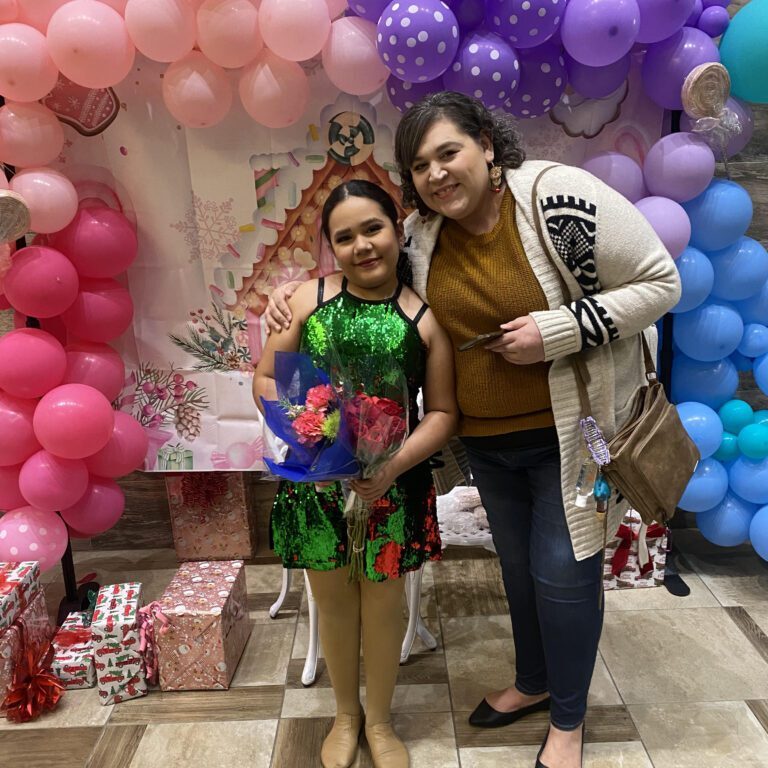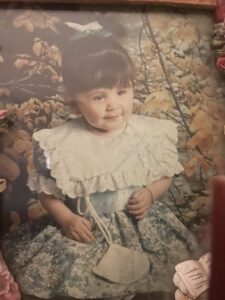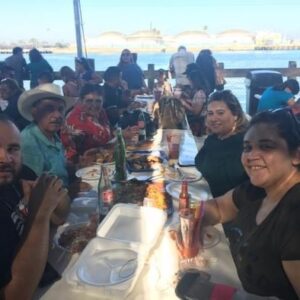
Janet from California
My name is Janet and I live in central California. I am thirty-one years old and live with classical Homocystinuria.
I want to take you back to the year 2002. I was ten years old, sitting with my parents in a tiny room at the Children’s Hospital. Two doctors came into the room, who later turned out to be my dietician and genetics doctor. Hearing the word “Homocystinuria” for the first time, sounded like a voodoo spell. My parents looked just as confused as I did and had a million questions, like “Is it a terminal disease?” and “Will I be able to live a full life?”. After getting some answers from the doctors, my parents seemed more at ease but still worried. I had no clue what was going on. I couldn’t even wrap my head around what was being said. I just knew that my life was going to completely change.
 As soon as we got home my parents tried to make as many changes to my diet as they could, and I fought them every single step of the way. I couldn’t understand why I was the only one in the family that had to change the way I ate. Remember, I was just ten years old with NO understanding of what Homocystinuria was. To me it was just a word that branded me as an outsider. I felt like I was put on display for not only my family, but my classmates as well.
As soon as we got home my parents tried to make as many changes to my diet as they could, and I fought them every single step of the way. I couldn’t understand why I was the only one in the family that had to change the way I ate. Remember, I was just ten years old with NO understanding of what Homocystinuria was. To me it was just a word that branded me as an outsider. I felt like I was put on display for not only my family, but my classmates as well.
In the cafeteria, other kids would look at my lunch and would ask me why I was eating “that” instead of what they were having, and I never could explain it because I myself did not know why I couldn’t have a “normal” lunch. I didn’t know what was going on within my body. I wanted nothing more than to have the foods that I had always eaten. The embarrassment was too much for me and I was tired of being looked at differently because of my food. I felt like I was being punished without knowing why. I was struggling so hard to stay within the guidelines of my diet. My levels were not going down and at every doctor's visit, I would get scolded.
I vividly remember my doctor telling me that by the age of 5, a child develops most of their taste buds. I was ten when I was diagnosed. She said I was pretty much set up for failure. Had I been diagnosed earlier, I would not have struggled as much as I did. I still struggle heavily with the diet. The low protein diet is incredibly stressful, and difficult to maintain.
 I recently have tried to regain control over my diet, but I ended up becoming even more anxious and scared to eat. I lost ten pounds in a month in the process and felt miserable and isolated. I obsessed over every morsel I put into my mouth. The diet has consumed me entirely; having to constantly count my protein intake and check the nutritional facts on every box of food. In any other situation where you're obsessing over nutrition labels and terrified of putting food in your mouth, they'd consider it an eating disorder. But somehow, this is the standard that we are prescribed, and it's considered healthy. At the end of the month, I realized I couldn’t do it anymore. I wanted to be happy even if that cost me. I ended up paying the price: I developed a deep vein thrombosis in my left hand, and as a result, I’ve lost 60% of my arm function.
I recently have tried to regain control over my diet, but I ended up becoming even more anxious and scared to eat. I lost ten pounds in a month in the process and felt miserable and isolated. I obsessed over every morsel I put into my mouth. The diet has consumed me entirely; having to constantly count my protein intake and check the nutritional facts on every box of food. In any other situation where you're obsessing over nutrition labels and terrified of putting food in your mouth, they'd consider it an eating disorder. But somehow, this is the standard that we are prescribed, and it's considered healthy. At the end of the month, I realized I couldn’t do it anymore. I wanted to be happy even if that cost me. I ended up paying the price: I developed a deep vein thrombosis in my left hand, and as a result, I’ve lost 60% of my arm function.
Being a first-generation Mexican-American and trying to navigate this disease took an extreme toll on me. Since the diagnosis was so rare, many doctors did not know how to explain it and there were even less people who knew how to interpret my disease in my parents’ native tongue. So, there I was, a scared ten-year-old girl, having to translate my disease, that I knew nothing about, to my parents.
toll on me. Since the diagnosis was so rare, many doctors did not know how to explain it and there were even less people who knew how to interpret my disease in my parents’ native tongue. So, there I was, a scared ten-year-old girl, having to translate my disease, that I knew nothing about, to my parents.
In a Hispanic household, food means love, family and togetherness. If you don’t eat what is prepared, it can be taken as a sign of disrespect to whoever made the food. For Latinos, food and social gatherings are a core part of our culture. So, when I stopped eating due to my diet, everyone was concerned and scared for my health. I felt like an outsider in my own family. While everyone was enjoying their bistec con arroz, I was stuck eating salads.
I long for the day when I’m not consuming 33 plus pills a day, but my biggest wish is to one day have a better treatment for HCU; one that would allow me to eat a less-restrictive diet, so that I can stop seeing food as the enemy, and truly feel a part of my family’s celebrations again.
